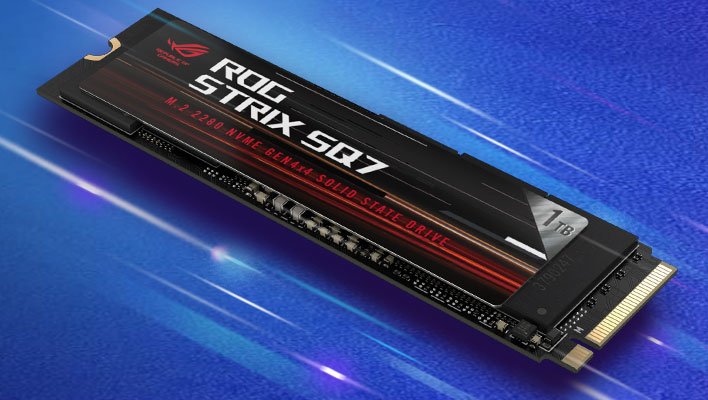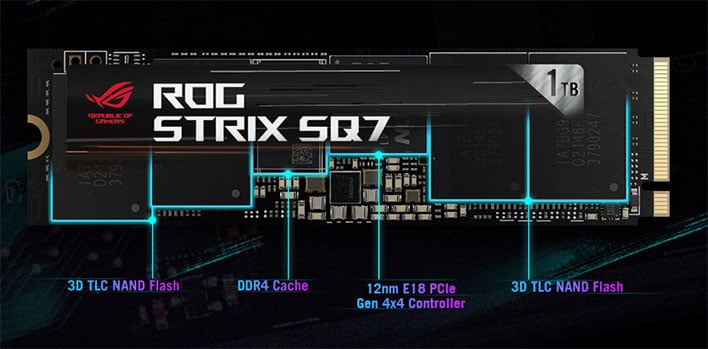ASUS Details Its First Ever SSD, The ROG Strix SQ7 And It's Screaming Fast

ASUS last month teased the release of its very first solid state drive (SSD), the ROG Strix SQ7 in 1TB form, but at the time it stopped short of offering up any detailed specifications and/or speed claims. Fast forward a few weeks and ASUS has now revealed some juicy details on what it promises will deliver "epic data speeds" to gamers and enthusiasts alike.
Let's start with the controller hardware. This is arguably the most important component on an SSD, or at the very least it is equal in importance to that of the NAND flash memory chips. When teased in early May, it was speculated the ROG Strix SQ1 would employ Phison's PS5018-E18 controller (PCIe Gen 4x4), and a new product listing on ASUS's website confirms this to be the case.

ASUS is pairing the E18 controller with 3D triple-level cell (TLC) memory. We still don't have clarification on precisely which ones, though speculation remains that it's using 176-layer NAND from Micron.. It also features an allotment of DDR4 cache for buffering chores.
Of course, what you're really interested are the speed claims. According to ASUS, the 1TB ROG Strix SQ7 offers up to 7,000MB/s of sequential read performance and up to 6,000MB/s of sequential write performance.
Those would put it among the upper echelon of PCIe 4 models, though not quite at the head of the pack—a spattering of PCIe 4 SSDs on the market boast speeds topping 7GB/s by a few hundred megabytes per second, such as Corsair's MP600 Pro XT. Nevertheless, ASUS is certainly dropping the hammer for its first ever SSD.
"The Strix SQ7 is compliant with numerous hardware encryption standards, including the TCG Opal specification, IEEE 1667 protocol, and AES 256-bit disk and data encryption. These hardware-based solutions ensure fast, efficient and superior security without affecting CPU performance," ASUS says.
Finally, ASUS has confirmed that the ROG Strix SQ1 is compatible with the PlayStation 5, for console owners who want to upgrade their PS5 with a fast SSD. All that is left now is for ASUS to announce pricing and a release date.

